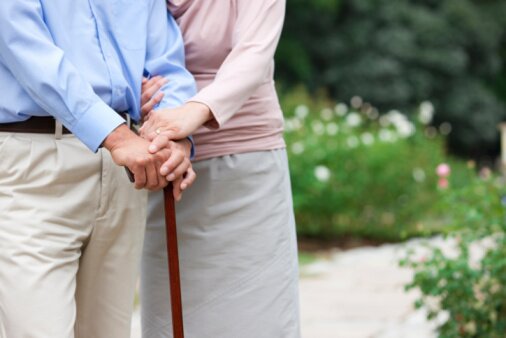Insomnia: When Sleep Brings No Rest
Bruce, a regular reader of the Daily Health left the following message in my inbox: “My wife suffers from some kind of sleep disorder and I keep urging her to get help. She says there’s nothing anyone can do… I doubt that. I find she sleeps extremely lightly and this has an effect on her health. Is there anything she can do?”
One can imagine that in uncertain times like these many people could be suffering from some kind of sleeping disorder. In 2005 a survey of 25,580 individuals found that around 16 per cent of Britons suffer from “non-restorative sleep” (NRS). With NRS, sufferers sleep through the night, but wake up feeling as bad as before going to bed. At the time of the survey, the UK was at the top of the NRS list compared with six other European countries (with Spain at the bottom), with just 2.4 per cent of the population having NRS… and that was before the recession.
Your sleep disorder could indicate something bigger
People who have difficulty sleeping at night or staying awake during the day may suffer from more than just a sleep disorder. According to a US study conducted by Dr. Clifford G. Risk, from the Marlborough Center for Sleep Disorders, people with a sleep disorder may suffer from multiple underlying conditions, such as fibromyalgia and chronic fatigue, that are reflected during sleep and disrupt the sleep process.
Dr. Risk and colleagues assessed 50 patients with NRS, daytime sleepiness, and fatigue and found that 33 patients suffered from obstructive sleep apnoea (OSA). Researchers also identified 15 patients with possible or probable attention deficit disorder (ADD). Further testing showed that patients also suffered from primary ADD, severe memory impairment, depression, and mild dyslexia.
Study results also showed a high degree of attention deficit in non-OSA patients with insomnia or a lack of deep, restorative sleep. Test results indicated that 28 patients suffered from neuromuscular disorders and mood and anxiety disorders. Ten patients suffered from primary neuromuscular disorders, such as fibromyalgia, chronic fatigue, or multiple sclerosis; 14 patients suffered from a primary psychological disorder, such as depression, bipolar disorder, or anxiety; and four of the patients were affected by only depression or fatigue.
Of this Dr. Risk said: “Patients with sleep disorders, who are not assessed for additional conditions, may continue to suffer from significant health problems. When seeing a specialist about a sleep disorder, patients should inform their health-care provider of any related conditions that could be contributing to their sleeping difficulties.”
Of course this leaves one to wonder: What came first, the sleeping disorder or the health risks?
Things that can influence our sleep.
Dr. Risk’s study above shows possible worst-case scenarios and for most of us our lack of sleep could simply be temporarily and can be solved by thinking about our sleeping habits. In our modern industrialised society many people have severe sleeping problems or a lack of restorative sleep.
The points below can help you to a better night’s rest:
1. Circadian Rhythm disturbances
It’s recently been in the news that working shifts “especially at night” could cause serious health concerns. Some people have severe sleeping problems due to shift work or interruption of the normal sleeping pattern because they have to take care of a crying baby or an old relative with dementia. Eight hours uninterrupted sleep is essential to getting the rest you need in order to be mentally and physically at your peak. If you need to have your eight hours during daytime because you work at night, make sure you sleep in a darkened room.
2. Sleeping hygiene
There can be a lot of possible causes in the environment that can have a negative impact on the quality of sleep.
- Remove electrical equipment from your bedroom. If you are sensitive to electrical pollution you may find that things such as an electrical alarm clock and a radio or television close to your bed may influence and disturb your sleep.
- Sleep in a dark room. Too much light in your room could prevent you from having a deep restful sleep.
- Try not to watch television before you go to bed – it prevents you from unwinding and relaxing especially when you have watched a programme with violence or lost of action.
3. Intake of sleep disturbing substances
Caffeine or nicotine almost definitely has a negative influence on your sleep. This is also true for alcohol, although many people believe alcohol would be a good “sleeping medicine”. Even some medical drugs can cause insomnia. The best is to avoid coffee, tea, alcohol and cigarettes at least for a couple of hours before you go to sleep.
4. Relaxing
Essentially this is what it all comes down to relax before you go to bed.
Some people find that having a bath before hitting the sack helps them to relax physically and this in turn helps them to slow down their minds and fall asleep easier. You can even try other known remedies such a cup of camomile tea before you jump in between the covers.
5. Psychiatric or organic causes
Insomnia is a common symptom of many psychiatric disorders like depression, manic-depressive disorders or schizophrenia. Chronic pain or heart diseases are two examples of somatic disorders showing itself in sleep disturbance.
It may be that you are suffering from sleep related breathing disorders, narcolepsy or other distinct forms of sleeping disorders in which case you need specialised medical attention to help you cope with these disorders and to set on the path of recovery.
6. Supplement with Magnesium
Insomnia is one of the symptoms of chronic magnesium deficiency. Magnesium deficiency is responsible for nervousness that prevents sleep. A high magnesium, low aluminium diet has been associated with high-quality sleep. Magnesium-rich foods include kelp, wheat bran, almonds, cashews, blackstrap molasses, and brewer’s yeast. The recommended dosage is approximately 250 milligrams before 10pm at night.
Back to Bruce
As women grow older they often have difficulties sleeping. Doctors tend to blame this common problem on the menopause – and they are wrong.
Sleep problems, which according to one recent survey affect nearly half of all women aged between 55 and 64, are more to do with stress and other illnesses than any hormonal change.
One of the key problems is obstructive sleep apnoea (OSA), a breathing disorder which doctors mistakenly believe mainly affects men. In fact, apnoea is a very common ?? but unrecognised ?? problem in women after the menopause, and it’s one that also increases the risk of heart disease and stroke.
Other age-related problems – such as restless legs syndrome, diabetes and arthritis – may also add to a woman’s poor sleep patterns.
Older women may also be juggling home and work problems, which can add to their stress levels and their inability to sleep.
Like most other problems, not sleeping properly will remain unsolved until the reasons are properly identified.
Did you find this information useful?
Then why not get more expert health recommendations just like this delivered direct to your inbox?
"It is truly refreshing to read a newsletter on the topic of alternative medicine which is scientifically based and reviewed by professionals..." - Robert Sinott
We respect your privacy and will never share your details with anyone else.Disclaimer: Bear in mind the material contained in this article is provided for information purposes only. We are not addressing anyone’s personal situation. Please consult with your own physician before acting on any recommendations contained herein.
Sources:
Sleep: When it doesn’t refresh, published online 01.05.05, wddty.com
Sleep Disorders Often Indicate Multiple Health Conditions, published online 05.11.04, sciencedaily.com
Non-restorative Sleep; Sleep Deprivation; Circadian Rhythm Disturbance, by Martin Winkler, published online 28.08.08, web4health.info
Sleep Problems: It ??s nothing to do with the menopause, doc, published online 03.05.07, wddty.com
- Comments (6)
- Facebook Comments (0)
Comments are closed.













I have trouble falling asleep and then waking up several times during the night. I think I have restless legs syndrome which I am finding out might have a lot to do with it. I take Lunesta 2 mg Sunday thru Thursday nights, then on the weekend I stay up until after midnight and try to sleep in (9 or 10 am). I yawn a lot during the day and wake up tired. I’m sure I’m not getting enough restorative sleep. I’m in good shape for my age and probably just need to start exercising regularly again and not drink my wine to close to bed time.
In the recent book, The Truth About Fibromyalgia, circumstantial evidence is presented that deep sleep disruption leads to an inability of the limbic system to properly “recharge”. Thus nit cannot properly inhibit pain or sympathetic nervous activity, creating a variety of ‘Central Sensitivity Syndromes’ (migraine, fibro, irritable bowel, chronic faitgue, bladder or pelvic pain, etc.). In my opinion therapy must be therefor directed at the chemical disturbance and poor sleep.
Mmmm Shelli and Danielle, I don’t think this article is about CFS – it’s actually about non-restorative sleep…(which may be a symptom of CFS). Nevertheless, I have found that Magnesium definitely helped me with my insomnia and not watching television for at least an hour before I go to bed. This is a useful article that can help a lot of people.
I suffer from non-restorative sleep and think it may be because I have diabetes and also have some arthritis symptoms. I always go to bed at 12 at night but before that I take cup of hot milk and honey. This seems to help a little.
Shelly, I couldn’t agree more. I am twenty-five and have had CFS/ME since I was eight. It took me fifteen years to get a diagnoses!
I wish doctors would take fatigue a little more seriously. I have Chronic Fatigue Syndrome, but I wasn’t diagnosed for over two years. I know there are many reasons for chronic fatigue, but there are a lot of things people can do to help their fatigue while the doctor figures out the puzzle.